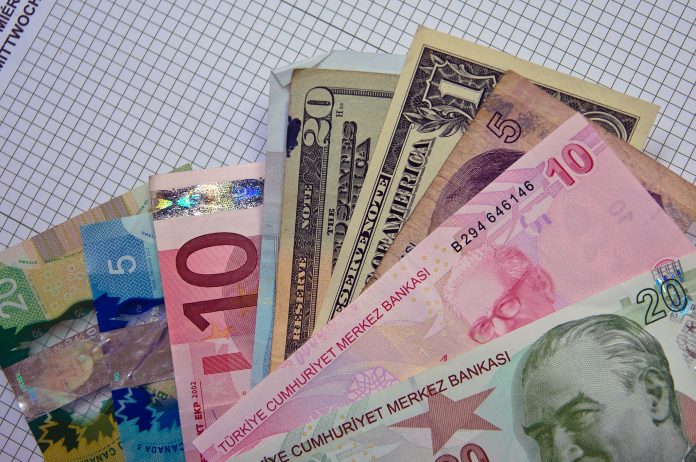Turkey’s currency is not the only one in trouble. South Africa, Argentina, Mexico, Brazil and Russia have all seen their currencies slip over the past week. And all of them are heavily dependent on foreign capital, especially the dollar.
“This is a typical ‘flight to quality’ move from foreign investors out of emerging markets to safer, developed countries,” Agathe Demarais, lead Turkey analyst at the Economist Intelligence Unit, told Agence France-Presse (AFP).
The rand and the ruble have both lost around 8% against the US currency over the past week, while Brazil’s real slipped 4%, and the Argentinian peso nearly 6%.
“Emerging markets as a whole do not look attractive at the moment as they have large foreign debts,” Yusuke Tanaka, senior dealer at Mitsubishi UFJ Trust and Banking, told AFP.
The MSCI index which groups around 20 emerging market currencies is at its worst level seen in a year.
“Investors are feeling jumpy,” said Gavin Keeton, an economist at Rhodes University in South Africa wrote in Business Day, “largely because of concerns about Turkey, which are dragging other emerging market currencies down too.”
Emerging currencies usually fluctuate as a function of investors’ confidence in the ability of their governments to repay their foreign currency debt.
According to AFP, however, a rapidly falling currency like the Turkish lira undermines that confidence as much more local money is needed to service foreign debt – making default that much more likely.
And while interest rate hikes should be used to defend a suffering currency, Turkey has refused to do so. Turkish President Recep Tayyip Erdogan appeared to have tied the central bank’s hands.
But although Turkey is under fire for failing to raise rates to stem the outflow, there is actually only so much that central banks can do to restore confidence, said Jameel Ahmad, Global Head of Currency Strategy at FXTM.
“I fear that because the markets are being driven by ‘animal spirits’ stemming from external headwinds, there is very little these central banks can do, and it would risk concerning investors even further if they start pushing the ‘panic’ button,” he said.
Financial markets are now waiting to see what Turkey does next, after a raft of measures unveiled August 13 did little to stem the tide.
“Turkey does not trigger such a devastating series of crises in other emerging markets that the combined impact could dent growth in the developed world in a meaningful way,” said Holger Schmieding, an economist with Berenberg Bank.

